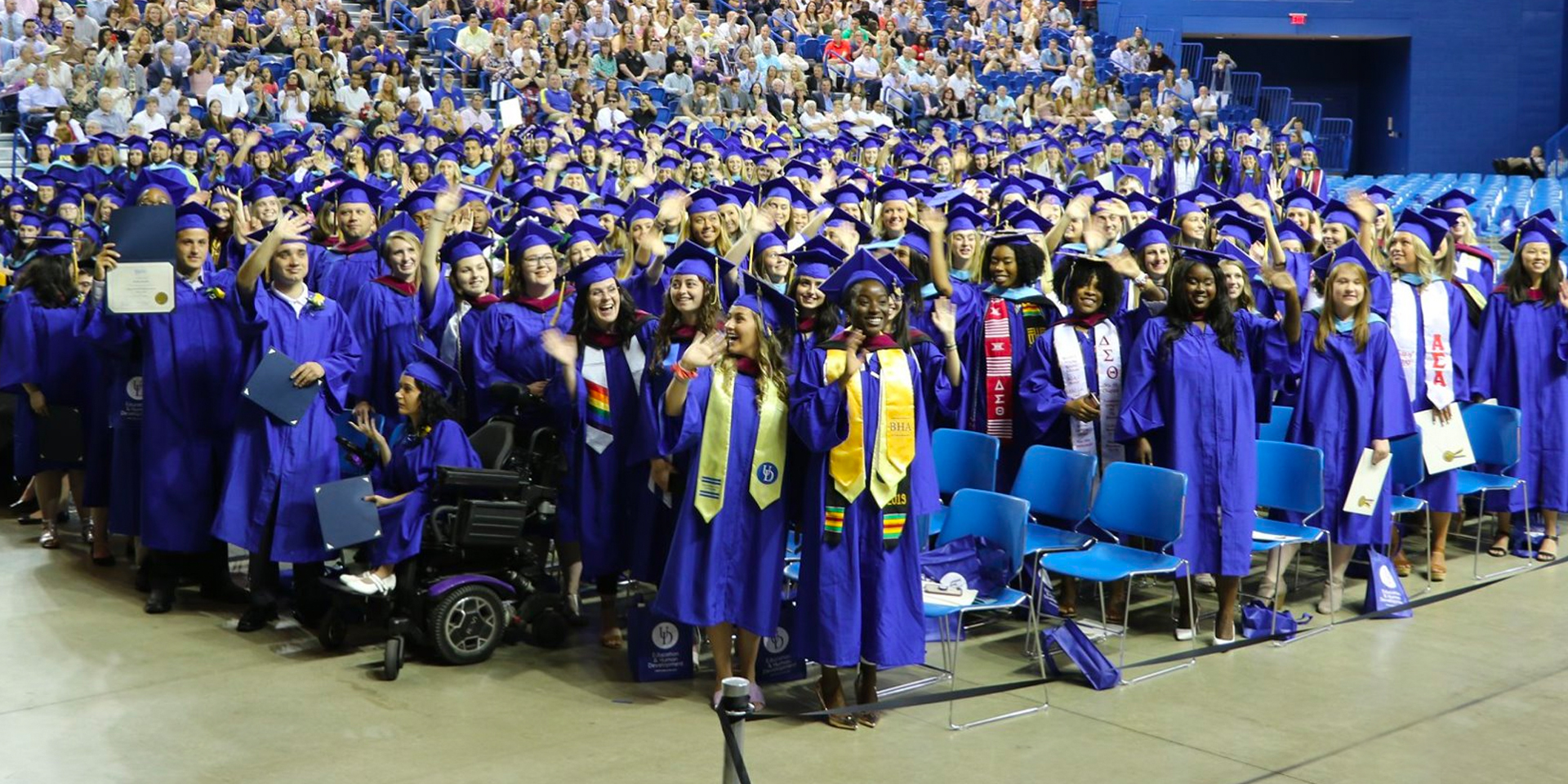Human Development and Family Sciences

Graduate Programs Admission Requirements
We are admitting students interested in:
- Early childhood education
- Adolescent development and emerging adulthood
- Nonprofit programs for children, adults, and their families: Human Services Leadership
The M.S. & Ph.D. programs in Human Development and Family Sciences are designed to prepare the next generation of scholars for positions as researchers, professors, leaders or practitioners in early childhood, human development, family studies, human services and related fields. The programs:
- emphasize risk and resilience, multi-cultural issues, disabilities, prevention and intervention.
- focus on applying theory and research to practice as they relate to human development and family systems.
- are designed to provide a strong background in the theoretical and empirical knowledge of family studies, human development and research methods.
- provide training in applied research and service-learning experiences are integrated in the curriculum.
Students work closely with faculty members to develop expertise in areas such as early childhood and education, service delivery, family support, disabilities, program evaluation, parent-youth interaction, and family relationships. As a student, you will discover that throughout your graduate experience you will be mentored by faculty who have active research projects and who work extensively in the field. HDFS faculty draw from a highly interdisciplinary approach to the field. Faculty provide students opportunities to grow in their knowledge and application of information derived from traditional disciplines while developing new ways to examine factors that affect individuals and families across their lives.
Students come to our department from many fields including education, early intervention, human development and family studies, psychology, nursing, social work, and human services. This helps to enrich the collaborative base of our programs.
- Research: Students have the opportunity to conduct research in intervention and prevention, early and family literacy, areas such as alcohol and substance abuse, domestic violence, prevention programming, disability studies, multicultural family issues, fatherhood, and parenting. Numerous research sites and programs are available to work with, including an Early Head Start program, an Early Reading First program, a longitudinal project exploring battered women’s experiences with protection orders, the Early Learning Center, the Laboratory Preschool, the Center for Community Research and Service, and many community-based programs.
- Teaching: Students with graduate assistant opportunities learn to assist with undergraduate classes, they work in the College School, the Center for Disabilities Studies, the Center for Counseling & Student Development, they guest lecture, and have the chance to teach introductory courses. Opportunities to advise undergraduates, work with honor students, and develop new courses are also available.
- Service: Students have the opportunity to work in programs and projects such as assisting with the development of independent living programs for young adults with disabilities, providing in-service with human services professionals, assisting with scholarly conferences and workshops, and assisting with service learning projects.
- International Experience: Students have traveled to Japan to attend an International Sociology Conference, Romania to work with children and mothers-at-risk, to Belgium to participate in family policy planning, to Austria and Panama to learn about family life education, and to China to learn about the one child family policy. Doctoral students have traveled to Greece to participate in international partnership meetings and research forums.
- Awards: Students have received awards from Strattner-Gregory Child Advocacy Award, Marion H. Steele Symposium Graduate Awards for Scholarly Presentations, Amy Rextrew Scholar Award, HDFS Travel Awards, and many other sources including university scholarships for research, travel and service.
Requirements for Admission
- All application materials should be submitted by the program deadlines for admission beginning in the Fall of the following academic year.
- Full-time and part-time applicants are considered for admission.
- Applications for all HDFS graduate programs are available online through the Grad College
- The admission process is competitive and is determined by the number of available vacancies, the qualifications of applicants, and the match with faculty expertise.
Specific requirements:
M.S. in Human Development and Family Sciences
- Application Deadline: December 15
- Transcripts of all previous academic work: Undergraduate cumulative GPA of at least 3.0 with a major GPA of at least 3.25; Graduate cumulative GPA of at least 3.5
- Three letters of reference;
- A personal statement essay that demonstrates alignment between the candidate’s statement of objectives and interests and the department’s capacity and available mentors;
- TOEFL or IELTS for applicants whose primary language is not English. The minimum acceptable score for the Internet-based TOEFL is 100. The minimum acceptable score for the IELTS is 7.0.
- All candidates must participate in an interview.
- GRE is not required
Ph.D. in Human Development and Family Sciences
- Application Deadline: December 15
- Transcripts of all previous academic work: Undergraduate cumulative GPA of at least 3.0 with a major GPA of at least 3.25; Graduate cumulative GPA of at least 3.5
- Three letters of reference;
- A personal statement essay that demonstrates alignment between the candidate’s statement of objectives and interests and the department’s capacity and available mentors;
- TOEFL or IELTS for applicants whose primary language is not English. The minimum acceptable score for the Internet-based TOEFL is 100. The minimum acceptable score for the IELTS is 7.0.
-
Application Process Update for 2026-2027 application cycle: The HDFS Department is waiving the GRE requirement for our graduate program this year. If you wish to apply without a GRE score, please enter a future GRE exam date into the application when prompted. This need not be an actual exam date. Entering any future date will allow your application to be sent on to our review committee where it will receive full consideration. Reporting your scores is entirely optional. If you chose to not submit a GRE score, this would have no bearing on the competitiveness of your application. If you have any questions regarding this process, email Kristen Pousson at kpousson@udel.edu.
- All candidates must participate in an interview.
